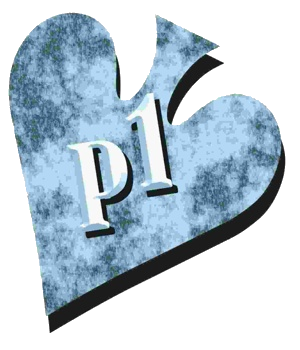
Note: Not at the old Poker1 site. A version of this entry was first published (2009) in Poker Player newspaper.
The essential soul of poker is deception. If you play with anything else in mind, you’ll fail. Let’s deal with that concept today, as we continue this series of self-interviews. Today’s word is “Trick,” and, although I don’t know what questions to expect from myself, I’ll try to keep us on topic. Here’s the first one…
Question 1: Can’t you just play cards without bothering to deceive your opponents?
Against your weakest opponents, you can just play a defined strategy without regard to what your opponents think or do. You’ll make money in the long run doing that. In fact, against opponents who play far too many hands, you can win by just playing very tight, selective poker and not entering many pots. As long as the rake isn’t too large, you’ll probably show a profit. Whenever opponents are playing their cards as if the game is bingo and are fairly oblivious to the cards others may hold, you have little to gain by playing deceptively.
It’s a fundamental law in poker that the weaker your opponents are, the less you need to stray from your most-obvious decisions by using trickery or deception. The more alert opponents are, the more you need to vary your decisions and rely on deception.
Fine. But even when you’re playing against the weakest, loosest opponents who fall in love with too many hands, you can still make extra profit through trickery. You might goad an opponent into betting an undesirable hand he would otherwise have checked. You might feign weakness by checking and give an opponent inspiration to bet.
The point is, even the worst players wouldn’t bet hands or make calls if they could see with their own eyes that you had them beat. That tells you something about poker. It tells you that poker is all about deception. And if you can trick opponents into thinking you have cards different from the ones you actually hold, you’ll earn more money.
Question 2: Don’t players get upset if you make them feel foolish by tricking them?
Yes. You should never deliberately upset opponents. If you do, they’ll seek revenge. You might be thinking, “So what? I’m the better player, let him seek revenge.” But it’s usually best not to have an opponent targeting you. When opponents are out to get you, they’ll push their best hands for extra value and that can cost you money. And they’ll be less likely to play frivolous hands against you, the ones that account for the greatest share of your profit.
So, immediately after you’ve tricked an opponent and won a pot, utter something friendly that indicates you were just having fun. I like to say things that suggest I played the hand badly and simultaneously enhance my loose image, such as, “I was hoping you’d call, because I’ve been out of line so many times. You’re way ahead of me overall, but I’m still trying the same stupid tricks.” Just giggle and move on. Your opponent isn’t likely to be offended, because you’re talking about your bad plays, not how superior your were with this one.
Question 3: Can you just play your hand the most obvious way and still trick your opponents?
Sure, and that’s the best deception of all. If your opponents are expecting you to do something tricky, and — instead — you just choose your obviously most-profitable decision, you’re playing in the highest-profit mode possible.
In draw poker, discarding two cards to three-of-a-kind and then betting has been called “the cruelest trick in poker.” That’s because, opponents often expect you to draw one card to disguise three-of-a-kind. And they expect you to check-raise for deception. But by often playing that hand in its most obvious manner — drawing two and betting — you average even more profit than by acting deceptively.
The challenge is to create an image that makes opponents uncertain, while playing a solid, routine game as often as possible.
Question 4: Are there any psychological tricks that work?
Many, and here’s an example. I’m an advocate of either-or trickery. I’ll say, “You’re not going to believe this, but I just made a full house. Either that or I’m bluffing, but I don’t bluff that often.” I’ve just simplified my opponent’s decision making — either I have a full house or I’m bluffing. This often allows me to bet two pair for value without fearing a raise from a flush, straight, three-of-a-kind, or a larger two pair. It makes a hand profitable to bet that I might have had to check otherwise.
Sometimes I’ll check a superior hand and say, “I might call if you bet.” That’s also an either-or variation. Either I’m going to call or fold. Often an opponent will feel safer risking a borderline bet or bluffing, gambling that I’ll either fold or call with an inferior hand, not realizing that I’m going to raise until it’s too late.
What you say in poker can be just as deceptive as how you play your hands.
Question 5: Why do some players frown on using trickery?
Usually it’s because they’re not good at it and resent the fact that you are.
Question 6: If I’m feeling uncomfortable about tricking my opponents, what should I do?
I strongly recommend solitaire. — MC
Next self-interview: Mike Caro poker word is Opinions

you cant talk about hands
I am going to use you as my poker coach. I am a conservative player, rarely raise and only really bluff to give off the impression that I bluff. I probably actually bluff about 5 percent of the time. My weakness is catching people who bluff flush hands. I assume I’ve lost many winning hands to flush bluffs. Also, just downloaded one of your books …